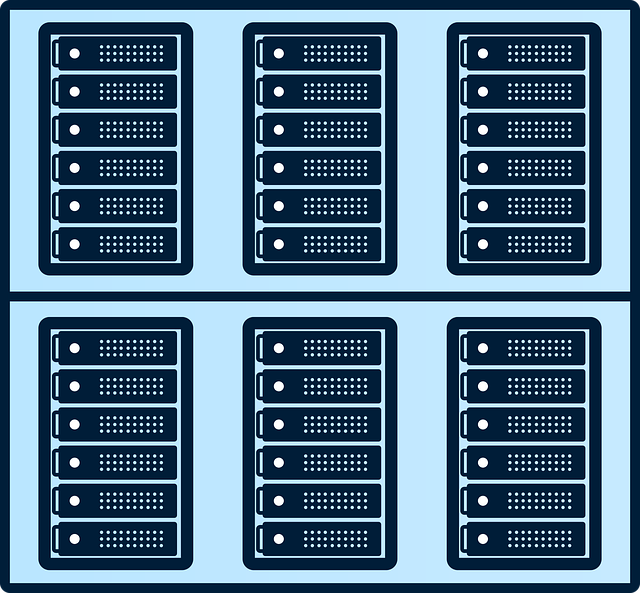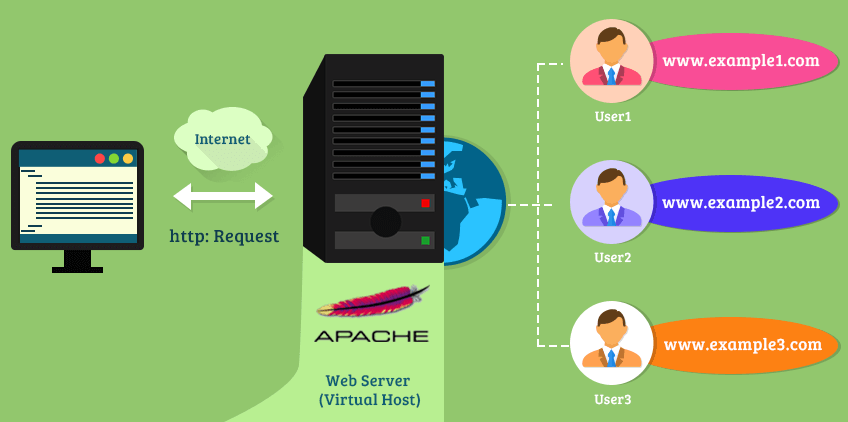Are you trying to decide between shared hosting, VPS, or dedicated server for your website? It's important to understand the costs associated with each option. In this article, we will break down the expenses and compare the pricing of shared hosting, VPS hosting, and dedicated server hosting.
By analyzing the factors impacting costs and considering your budget, you will be able to make an informed decision for your hosting needs.
Key Takeaways
- Shared hosting is the most affordable option for small businesses and personal websites.
- VPS hosting offers better performance and flexibility compared to shared hosting.
- Dedicated hosting provides the highest level of performance and reliability.
- VPS and dedicated hosting plans are more expensive but offer scalability and customization options.
The Basics of Shared Hosting
Shared hosting is a popular choice for small businesses and personal websites. There are both benefits and limitations to be aware of when it comes to shared hosting. On the positive side, shared hosting is affordable and cost-effective. The hosting provider can offer this service at a lower price point because you are sharing server resources with other websites. This makes it a great option for those who are just starting out or have a limited budget.
Another benefit of shared hosting is that it is easy to set up and manage. The hosting provider takes care of all the technical aspects, such as server maintenance and security updates. This allows you to focus on building and managing your website without any hassle.
However, shared hosting does have its limitations. One major limitation is the lack of resources. Your website's performance can be affected if another site on the same server experiences high traffic or consumes a lot of resources. Additionally, you have limited control over the server settings and configurations, as these are managed by the hosting provider.
Understanding VPS Hosting
VPS hosting offers more control and flexibility compared to shared hosting. With VPS, you have the advantage of customizing your server settings to meet your specific needs. You have your own virtual server, which means you don't have to worry about other websites affecting your performance.
Speaking of performance, VPS hosting also offers better performance compared to shared hosting. Since you have dedicated resources, your website will load faster and handle more traffic without any lag. This is especially important if you have a business website or an e-commerce store where every second counts.

Additionally, VPS hosting allows you to scale your resources as your website grows. You can easily upgrade your RAM, CPU, and storage without any downtime. This scalability ensures that your website can handle increased traffic and maintain optimal performance.
Exploring Dedicated Server Hosting
When it comes to dedicated server hosting, you'll experience top-notch performance and reliability. With a dedicated server, you have complete control over the resources, ensuring optimal performance for your website or application.
Additionally, customization options are abundant, allowing you to tailor the server to your specific needs. The cost may be higher than other hosting options, but the scalability of a dedicated server makes it a worthwhile investment for businesses with growing needs.
Performance and Reliability
To ensure optimal performance and reliability, you'll want to consider the resources available to you. When it comes to performance analysis, shared hosting may not be the best option. Since you are sharing resources with other websites, your site's performance can be affected if other sites on the same server experience high traffic.
On the other hand, VPS (Virtual Private Server) offers better performance compared to shared hosting. With VPS, you have dedicated resources that are not shared with other websites, resulting in better speed and performance.
However, if you require the highest level of performance and reliability, dedicated hosting is the way to go. With a dedicated server, you have complete control over the resources, allowing you to optimize your site's performance and ensure its reliability.
Customization and Control
If you want more control over your server and the ability to customize it to your specific needs, dedicated hosting is the best option. With dedicated hosting, you have the freedom to choose the hardware, software, and operating system that best suits your requirements. This level of control allows you to optimize your server's performance and ensure that it runs efficiently.

Additionally, dedicated hosting provides numerous customization benefits, including the ability to install custom applications, configure security settings, and manage resources based on your unique demands.
Whether you are running a high-traffic website, an online store, or a complex web application, dedicated hosting empowers you to tailor your server environment to meet your specific goals and objectives. Take advantage of the customization benefits and level of control offered by dedicated hosting to create a hosting solution that perfectly aligns with your needs.
Cost and Scalability
You can easily scale your server resources as your website or application grows, ensuring that you only pay for what you need at any given time. This scalability is a significant advantage when it comes to cost analysis and cost effectiveness.
With shared hosting, you are limited to the resources provided by the hosting provider. If your website experiences high traffic, you may face downtime or slow loading times.
On the other hand, with VPS or dedicated hosting, you have the flexibility to increase your server resources as needed, without any disruptions. This scalability allows you to optimize your costs by only paying for the resources you require. It is a cost-effective solution for your growing website or application.
Comparing Shared Hosting Costs
The cost of shared hosting is typically lower than that of VPS or dedicated hosting. Shared hosting is a cost-effective option for individuals or small businesses looking to establish an online presence without breaking the bank. You're sharing server resources with other websites, which helps to keep the costs down. On the other hand, VPS and dedicated hosting plans are more expensive because you have dedicated resources and more control over your server.
When it comes to comparing shared hosting vs. cloud hosting costs, it's worth noting that cloud hosting can be more expensive than shared hosting. Cloud hosting offers scalability and flexibility, allowing you to scale your resources as needed, but this convenience comes at a higher price. Shared hosting is a more affordable option for those who don't require extensive resources or high levels of customization.

Analyzing VPS Hosting Expenses
When it comes to VPS hosting, it's important to consider the cost comparison between different providers. Factors such as CPU, RAM, storage, and bandwidth can greatly affect VPS expenses. Additionally, scalability and pricing options should be taken into account to ensure you're getting the most value for your money.
VPS Cost Comparison
Comparing VPS costs can help you determine the most economical hosting option for your needs. It's important to understand the cost breakdown and find cost-effective options when it comes to VPS. VPS cost breakdown typically includes factors like CPU power, RAM, storage, and bandwidth. By comparing different VPS providers, you can find the best balance between price and performance.
Look for providers that offer flexible pricing plans, allowing you to scale up or down as needed. Additionally, consider the level of support and customer service provided by the hosting company. While it's important to find a cost-effective VPS option, it's equally important to ensure reliable performance and excellent support. Take the time to research and compare different providers to find the right fit for your budget and requirements.
Factors Affecting VPS Expenses
Now let's delve into the factors that can affect your expenses when it comes to VPS hosting. One crucial aspect to consider is the VPS hardware requirements. Depending on your website's needs, you may require more powerful hardware, which can drive up costs.
Additionally, the VPS management costs should not be overlooked. While shared hosting typically includes management services, with VPS hosting, you have more control and responsibility. This means you may need to allocate resources to manage and maintain your VPS, either by hiring a dedicated IT team or outsourcing these tasks to a managed VPS provider. These management costs can add up, so it's essential to factor them into your budget when comparing the overall costs of shared hosting, VPS hosting, and dedicated hosting.
VPS Scalability and Pricing
To ensure your VPS hosting costs remain manageable, it's important to consider the scalability options available and how they impact pricing. VPS scalability refers to the ability of your virtual private server to handle increased demands and traffic as your website grows. When it comes to VPS pricing, scalability plays a significant role.
Most VPS providers offer different plans with varying amounts of resources, such as CPU, RAM, and storage. As your website's needs increase, you can easily upgrade your VPS plan to accommodate the additional traffic and resources required.

However, it's crucial to choose a provider that offers flexible scalability options without incurring excessive costs. By selecting a VPS hosting provider that allows you to scale up or down as needed, you can effectively manage your budget while ensuring your website performs optimally.
Evaluating Dedicated Server Pricing
If you're looking for a more reliable and powerful hosting option, dedicated servers may be worth considering due to their customized pricing plans. When it comes to dedicated server options, you have a range of choices that can cater to your specific needs. These options include managed servers, unmanaged servers, and hybrid servers.
Managed servers provide you with the convenience of having a dedicated team of experts who will handle all the maintenance and management tasks for you. On the other hand, unmanaged servers give you complete control and flexibility to customize and manage your server according to your preferences. Hybrid servers, as the name suggests, offer a combination of both managed and unmanaged features.
In terms of dedicated server performance, you can expect top-notch reliability and speed. With a dedicated server, you are not sharing resources with other users, which means you have all the resources to yourself. This translates to faster processing speeds, better website performance, and improved overall user experience.
Additionally, dedicated servers offer higher levels of security, as you have complete control over your server's security protocols and can implement measures to protect your data and applications. Overall, dedicated servers are a solid choice if you prioritize customization, reliability, and performance. They may require a higher investment compared to shared hosting or VPS, but the benefits they offer in terms of power and control make it a worthwhile option for businesses and individuals with higher hosting needs.
Factors Impacting Shared Hosting Costs
When considering your hosting options, it's important to take into account the various factors that can impact the cost of shared hosting. Shared hosting pricing can vary based on several key factors. The first factor is the hosting provider itself. Different providers offer different packages at varying price points, so it's essential to compare and choose the one that best fits your needs and budget.
The second factor is the level of resources allocated to your website. Shared hosting means sharing server resources with other websites, so the more resources you require, the higher the cost will be. Bandwidth and storage space are examples of resources that can affect pricing.

Another factor is the additional features and services included in your shared hosting plan. Some providers may offer extras like SSL certificates, website builders, or automatic backups, which can increase the overall cost. Lastly, the contract length plays a role as well. Opting for longer-term contracts often comes with discounts or lower monthly rates.
Cost Considerations for VPS Hosting
Considering your needs and budget, you'll find that VPS hosting offers cost advantages compared to other hosting options. When it comes to VPS hosting affordability, there are several factors to consider. First, VPS hosting provides you with the flexibility to customize your server resources based on your specific requirements. This means you only pay for the resources you need, saving you money compared to dedicated hosting where you have to pay for a whole server.
Additionally, VPS hosting offers cost-saving options such as scalable plans, which allow you to easily upgrade or downgrade your resources as your website demands change. This means you can start with a smaller plan and gradually increase your resources as your business grows, avoiding any unnecessary expenses upfront.
Furthermore, some VPS hosting providers offer managed services, where they take care of server maintenance and updates for you. While this might come at an additional cost, it can save you time, effort, and money compared to hiring a dedicated IT team.
Overall, VPS hosting provides an affordable option that gives you control over your server resources and allows you to optimize your costs based on your needs.
Determining Budget for Dedicated Server Hosting
To determine your budget for dedicated server hosting, you'll need to assess your specific requirements and compare different pricing options. Budget estimation and cost analysis are crucial steps in this process. First, consider the resources your website or application requires. How much CPU power, RAM, storage, and bandwidth do you need? Make a list of these requirements to help you evaluate different hosting plans.
Next, research different hosting providers and compare their pricing structures. Some providers offer fixed plans with set prices, while others offer customizable options where you can choose the specific resources you need. Take into account any additional costs, such as setup fees or monthly maintenance fees.

It's also important to consider the level of technical support provided by the hosting provider, as this can impact the overall cost. Finally, don't forget to factor in any future scalability needs. As your website or application grows, you may require additional resources, so choose a hosting plan that allows for easy scalability without incurring significant additional costs.
Frequently Asked Questions
What Are the Main Differences Between Shared Hosting, VPS Hosting, and Dedicated Server Hosting?
The main differences between shared hosting, VPS hosting, and dedicated server hosting are their features, advantages, and disadvantages. Shared hosting is cost-effective but lacks scalability, while VPS offers more flexibility and control. Dedicated hosting provides maximum performance but comes at a higher cost.
Can I Upgrade My Hosting Plan From Shared Hosting to VPS or Dedicated Server Hosting?
Yes, you can upgrade your hosting plan from shared hosting to VPS or dedicated server hosting. When comparing hosting options, consider the cost, performance, and scalability to make the best decision for your website.
Are There Any Additional Costs or Fees Associated With Shared Hosting, VPS Hosting, or Dedicated Server Hosting?
There may be additional costs or hidden fees associated with shared hosting, VPS hosting, or dedicated server hosting. It's important to carefully review the terms and conditions of each hosting option to understand any potential extra expenses.
How Can I Determine Which Hosting Option Is the Most Cost-Effective for My Website's Needs?
To determine the most cost-effective hosting option for your website's needs, consider factors like traffic levels, resource requirements, and budget. Evaluate shared hosting, VPS, and dedicated servers based on these criteria.
Are There Any Limitations or Restrictions on the Resources or Performance of Shared Hosting, VPS Hosting, or Dedicated Server Hosting?
Shared hosting may have resource limitations due to sharing server resources with other websites. VPS hosting provides dedicated resources, but performance may be affected if the allocated resources are exceeded. Dedicated server hosting offers the highest performance with no restrictions.
Conclusion
In conclusion, when it comes to choosing the right hosting option for your website, it's important to consider the costs involved. Shared hosting offers a budget-friendly solution, while VPS hosting provides more control and flexibility at a slightly higher price point.

Dedicated server hosting is the most expensive option but offers unparalleled performance and resources. Ultimately, the decision should be based on your specific needs and budget. So, weigh the costs and benefits carefully to make an informed choice for your website hosting.

